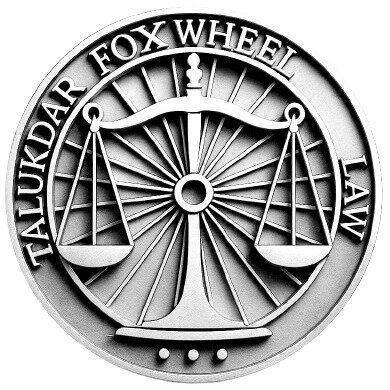Best Collaborative Law Lawyers in Guwahati
Share your needs with us, get contacted by law firms.
Free. Takes 2 min.
Free Guide to Hiring a Family Lawyer
List of the best lawyers in Guwahati, India
About Collaborative Law in Guwahati, India
Collaborative Law is an alternative dispute resolution process that emphasizes cooperation over confrontation, particularly in family disputes like divorce, child custody, and property division. In Guwahati, as elsewhere in India, collaborative law offers a structured environment for parties to work together with their lawyers and sometimes neutral professionals to reach a mutually acceptable agreement, avoiding the traditional adversarial court system. The process supports open communication and respect, which can be especially beneficial in personal and emotionally charged matters.
Why You May Need a Lawyer
People often seek the help of collaborative law professionals in Guwahati for several reasons:
- To resolve family disputes such as divorce, child custody, alimony, and property division amicably.
- To avoid lengthy and stressful litigation, choosing instead a cooperative and confidential process.
- When both parties wish to maintain a healthy relationship post-dispute, especially for co-parenting situations.
- If there is a need to craft creative and flexible solutions that courts might not typically be able to facilitate.
- To benefit from guidance by legal, financial, and mental health professionals in the collaborative process.
- To ensure legal rights and interests are protected during negotiations.
Local Laws Overview
Collaborative law is gaining recognition in Guwahati, though it is not governed by a specific statute in India. The process works within the framework of existing family and civil law, such as the Hindu Marriage Act, 1955, Special Marriage Act, 1954, and the Guardians and Wards Act, 1890. Parties voluntarily agree to participate and are represented by their own lawyers, who are committed to resolving issues without resorting to court litigation. If the collaborative process breaks down, the involved lawyers must withdraw, and the parties may seek different counsel for court proceedings. All communications during the process are held in strict confidence and usually cannot be used in future court cases.
While still developing, Guwahati’s legal community is increasingly aware of the benefits of collaborative law, and several lawyers have received relevant training. Local courts encourage amicable settlements, especially in family matters, supporting the collaborative law ethos.
Frequently Asked Questions
What is collaborative law?
Collaborative law is a voluntary, non-adversarial approach to dispute resolution where parties work cooperatively with their lawyers to settle issues without going to court.
Is collaborative law recognized in Guwahati?
While there is no dedicated legislation, collaborative law operates within the existing legal framework in Guwahati and is gaining popularity among people seeking out-of-court settlements.
What types of disputes can be resolved through collaborative law?
Most commonly, family disputes such as divorce, child custody, maintenance, division of property, and related matters are resolved using collaborative law.
What are the benefits of collaborative law over litigation?
Collaborative law offers confidentiality, control over the process, faster resolution, reduced stress, lower costs, and a better chance at preserving relationships.
Do both parties need to agree to collaborative law?
Yes, collaborative law requires the voluntary participation of both parties and their respective lawyers.
What happens if the collaborative process fails?
If an agreement isn’t reached, the lawyers involved must withdraw, and the parties are free to seek representation for court litigation.
Are the agreements reached in collaborative law enforceable?
Yes, agreements made through collaborative law can be formalized and filed with the court, making them legally binding.
Who else may be involved in the collaborative law process?
Apart from lawyers, neutral professionals such as financial advisors, child specialists, and counselors may be involved to provide their expertise.
Is collaborative law suitable for all disputes?
Collaborative law is not suited for cases involving domestic violence, abuse, or situations where parties cannot negotiate freely or safely.
How do I find collaborative law professionals in Guwahati?
Many family lawyers in Guwahati offer collaborative law services. You can seek referrals from the local bar association or legal aid centers.
Additional Resources
If you are considering collaborative law in Guwahati, the following resources and organizations may be helpful:
- Gauhati High Court Legal Services Committee: Provides legal advice, counseling, and can help locate trained collaborative law professionals.
- Assam State Legal Services Authority (ASLSA): Offers mediation, conciliation, and other alternative dispute resolution services.
- Local Bar Associations: The Guwahati Bar Association or Kamrup Metropolitan Bar Association can recommend experienced family lawyers trained in collaborative law.
- Family Counseling Centers: Operated by NGOs and government departments, these centers can guide families towards collaborative dispute resolution.
- Women & Child Welfare Organizations: May provide support and legal guidance in family law matters.
Next Steps
If you are interested in resolving your dispute through collaborative law in Guwahati, consider the following steps:
- Research and shortlist lawyers practicing collaborative law in Guwahati.
- Consult with a collaborative law professional to discuss your situation and understand if the process is appropriate for your case.
- Speak with the other party and suggest collaborative law as an option-participation is voluntary for both sides.
- Initiate the process by signing a participation agreement outlining the rules of the collaborative process.
- Engage with neutral professionals if needed, depending on the complexity of your dispute.
- Work towards a mutually agreeable settlement, with your lawyers assisting you throughout.
- Once an agreement is reached, your lawyers can help formalize it legally and file it with the appropriate court if required.
- If at any stage you feel collaborative law is not working, you retain the right to discontinue and approach the court as per legal procedures.
Taking a collaborative approach can offer a healthier, more constructive way forward for all involved. Always ensure you consult with experienced professionals before making any major legal decisions.
Lawzana helps you find the best lawyers and law firms in Guwahati through a curated and pre-screened list of qualified legal professionals. Our platform offers rankings and detailed profiles of attorneys and law firms, allowing you to compare based on practice areas, including Collaborative Law, experience, and client feedback.
Each profile includes a description of the firm's areas of practice, client reviews, team members and partners, year of establishment, spoken languages, office locations, contact information, social media presence, and any published articles or resources. Most firms on our platform speak English and are experienced in both local and international legal matters.
Get a quote from top-rated law firms in Guwahati, India — quickly, securely, and without unnecessary hassle.
Disclaimer:
The information provided on this page is for general informational purposes only and does not constitute legal advice. While we strive to ensure the accuracy and relevance of the content, legal information may change over time, and interpretations of the law can vary. You should always consult with a qualified legal professional for advice specific to your situation.
We disclaim all liability for actions taken or not taken based on the content of this page. If you believe any information is incorrect or outdated, please contact us, and we will review and update it where appropriate.












